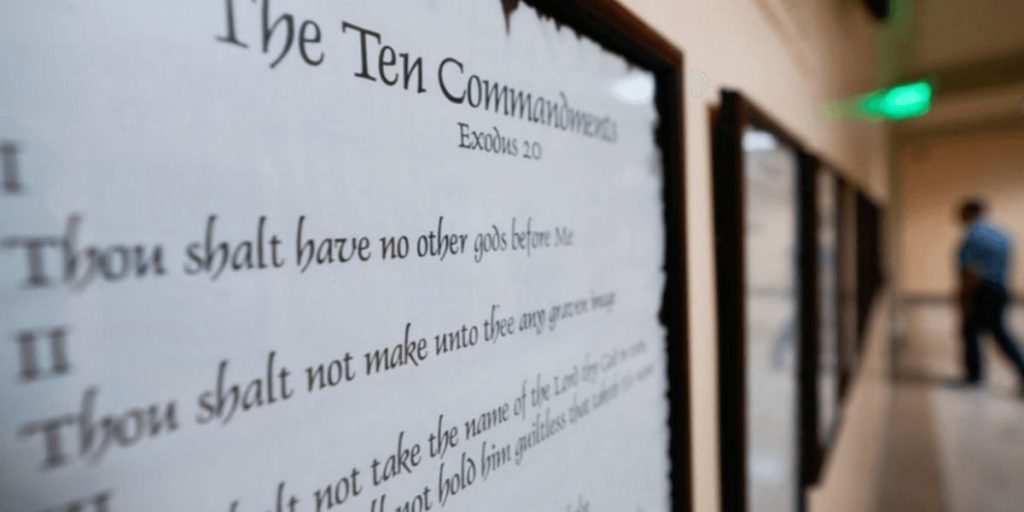
According to a new Tennessee measure that is loosely based on a Louisiana legislation that is presently being challenged in court, schools would have to display the preamble to the U.S. Constitution, the Ten Commandments, and a section of the Declaration of Independence.
The documents must be posted together in a “prominent area” of the school, such as the cafeteria, an entrance, or another common area where children are likely to see them, according to Senate Bill 151, which is sponsored by Senator Mark Pody (R-Lebanon).
According to the bill, the objective is to “educate students on the significance of the Ten Commandments to the principles and ideals of the United States of America, as established in its founding documents.”
“We did one that said, ‘In God We Trust’ that had to be in all the schools; that had to be paid for with donations, so we’re filing one the same way,” Sen. Pody stated.
According to Pody, the legislation would not incur any costs for the state because organizations would be urged to donate funds for the documents or the documents themselves to the schools.
Some contend that if the law passes, school districts would have to pay legal fees.
“If you make it a requirement, you are going to draw a lawsuit,” stated J.C. Bowman, the CEO and executive director of Professional Educators of Tennessee.

Bowman said he has nothing against the Ten Commandments, but after Kentucky passed a law requiring the Ten Commandments in classrooms, the Supreme Court decided 5-4 in 1980 that they are “plainly religious in nature” and that their display in schools is a violation of the First Amendment’s Establishment Clause.
“Whether I agree with it or not, it is the current law, and I don’t like public schools being used in Tennessee to try a case that could be drawn out and cost taxpayer money,” Bowman stated.
A similar law was passed in Louisiana last year that required the Ten Commandments to be displayed in classrooms. This law was scheduled to take into effect in January 2025, but a federal judge overturned it last November.
The state maintained that the Ten Commandments are historically significant to the establishment of U.S. law. On Thursday, a federal appeals judge is anticipated to listen to the arguments on the case.
Bowman stated that states might be attempting to “poke the bear” now that the Supreme Court has become more conservative.
Delaware’s Five Public Housing Authorities Open Their Waitlists for New Applicants
“We know they challenge laws on a periodic basis to see if the Supreme Court will eventually overturn something. Maybe that’s the case here and the intent,” Bowman stated. “If that’s the case, we don’t want to be guinea pigs, and I know no district wants to go in and say, ‘Okay, we’re required to do it,’ and all of a sudden we’ve got a lawsuit.”
Instead, Bowman says lawmakers should look into a bill that would amend Tennessee’s recently adopted social studies requirements to include “foundational documents,” which would include the Ten Commandments.
A House sponsor is still required for the bill. Last week, it was introduced and approved by the Senate during its initial deliberation.



